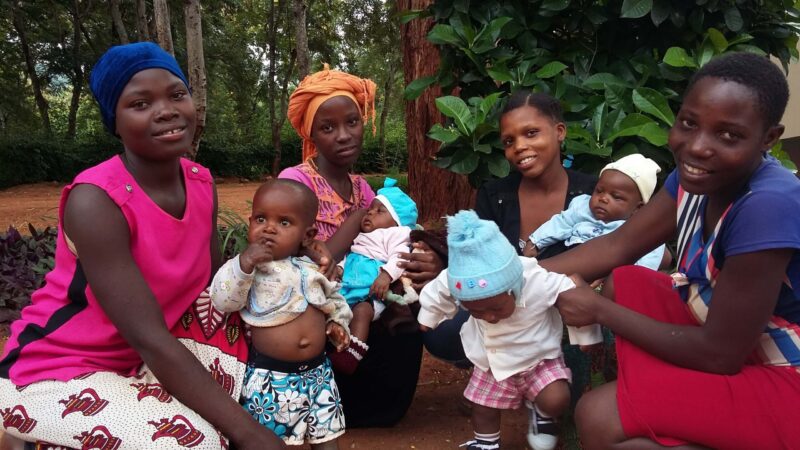Global Issues
Maputo Protocol: Advancing Women and Girls Rights in Africa -By Kestér Kenn Klomegâh
On this 20th anniversary, the organizations reaffirm their unwavering resolve to work with states and civil society to advance and protect gender justice in Africa. Through collective action, compassion, and determination, to ensure the promise of gender equality is a lived reality for every woman and girl on this continent.

As Africa marks two decades (20 years) of the adoption of the continental protocol for advancing and protecting the Rights of Women and Girls in mid-August 2023, a number of African countries have still not ratify the agreement. This legal instrument has established a comprehensive framework that outlines the standards which states should follow in promoting and protecting women’s rights.
Over the past two decades, the Maputo Protocol has played a crucial role in advancing women’s rights and enabling access to justice for human rights violations and abuses, according to the media statement jointly issued by Amnesty International, Equality Now, International Federation of Gynecology and Obstetric (FIGO) and Solidarity for African Women’s Rights (SOAWR).
By the failure for ratification implies the protocol has not yet to reach this milestone. The ratification by South Sudan in June 2023 is commendable and brings the total ratifications to 44 out of 55. The African countries that have not ratified the protocol includes Burundi, Botswana, Central African Republic, Chad, Egypt, Eritrea, Morocco, Madagascar, Niger, Somalia and Sudan.
Relying on the Protocol, courts in Kenya and Uganda have made historic decisions affirming the prohibition of female genital mutilation (FGM). The African Commission on Human and Peoples’ Rights (the African Commission) held duty-bearers accountable for failing to investigate and prosecute sexual and gender-based violence against women during violent demonstrations in Egypt.
In a groundbreaking May 2018 decision, the African Court on Human and Peoples’ Rights held that Mali violated several articles of the Protocol on the minimum age for marriage, the elimination of all forms of discrimination against women, the right to consent to marriage, the right to inheritance for women and children born out of wedlock, and the elimination of harmful traditional and cultural practices.
Drawing on commitments laid out in the Protocol, 38 out of 55 African states have enacted laws and policies that protect adolescent girls’ right to education during pregnancy and motherhood. Niger and Togo repealed policies banning pregnant students and young mothers from attending school in 2019 and 2022 respectively.
An Economic Community of West African States (ECOWAS), the 16-member regional organization, court-decision affirmed pregnant girls’ right to education in Sierra Leone and Article 6 of the Protocol has been used to challenge forced marriage and child marriage across the continent.
These successes, however, remind the long way ahead in building cohesive and inclusive nations that respect women’s rights. Women continue to face enormous challenges, including economic inequality, lack of access to land and financial resources, various forms of gender-based violence and obstacles in accessing education and comprehensive health care, including sexual and reproductive health care.
Armed conflicts continue to devastate the social fabric of communities, with a particularly troubling impact on women and girls who remain disproportionately affected by sexual and gender-based violence as has been the case in the conflicts in Northern Ethiopia and in Sudan. Sexual exploitation, forced marriage, child marriage and discrimination based on perceived or real sexual orientation, gender identity and expression, or sex characteristics, sadly remain realities that many women and girls continue to endure.
The statement says states must enact and implement comprehensive strategies, including legal reforms and accountability mechanisms, awareness campaigns and comprehensive sex education. “We call on member states to urgently adopt approaches that prioritize the needs and centre the agency of the survivors of sexual violence. Survivor-centred approaches are crucial to breaking the cycle of silence and stigma surrounding sexual violence and promoting healing, justice, and long-term empowerment for survivors,” the statement says.
Despite significant advancements in women’s rights over the past two decades, the realization of women’s economic rights remains an ongoing struggle in Africa. Unequal pay remains a pervasive challenge.
In sub-Saharan Africa, the gender pay gap stands at 30 percent and only 3.9 percent of women are covered by social protection measures. Many women have limited access to credit and financial resources and face systemic barriers to entrepreneurship (including criminalization of informal sector) and access to leadership positions. In additional, women disproportionately bear the burden of unpaid care work, hindering their ability to fully participate in the formal economy.
In order to achieve true gender equality, governments must take concrete steps to dismantle discriminatory practices and invest in enabling environments that empower women economically. This includes implementing policies that promote equal pay, providing access to affordable childcare, ensuring women’s land and property rights, and fostering inclusive business environments that embrace women’s formal and informal entrepreneurship.
The resistance and reservations of states to crucial provisions of the Maputo Protocol on health and reproductive rights (Article 14) and marriage (Article 6) have a negative impact on women and girls’ rights to bodily autonomy and impede full domestication of the Protocol.
The African Commission reaffirmed women’s rights to have control of matters related to their sexuality, including sexual and reproductive health, and to be free from coercion, discrimination or violence in its General Comment No. 2 on Article 14.1 (a), (b), (c) and (f) and Article 14. 2 (a) and (c). Rwanda and The Gambia have set positive examples by removing reservations to the Protocol. We call upon all states to do the same to ensure that sexual and reproductive rights and justice are enjoyed by all.
On this 20th anniversary, the organizations reaffirm their unwavering resolve to work with states and civil society to advance and protect gender justice in Africa. Through collective action, compassion, and determination, to ensure the promise of gender equality is a lived reality for every woman and girl on this continent.
Amnesty International, Equality Now, International Federation of Gynecology and Obstetric (FIGO) and Solidarity for African Women’s Rights (SOAWR) reiterate calls to: Botswana, Burundi, Central African Republic, Chad, Egypt, Eritrea, Madagascar, Morocco Niger, Somalia and Sudan to urgently ratify and domesticate the Maputo Protocol.
And further to Cameroon, Ethiopia, Kenya, Mauritius, Namibia, South Africa and Uganda to remove their reservations to the Maputo Protocol and enable their populations to enjoy its full benefits.
Amnesty International, Equality Now, International Federation of Gynecology and Obstetric (FIGO) and Solidarity for African Women’s Rights (SOAWR) finally appeal all member states to invest in and prioritise the needs of survivors and in particular survivors of sexual violence.
It appeals to implement policies that promote equal pay, access to affordable childcare, women’s land and property rights, and inclusive business environments for women’s formal and informal entrepreneurship, and implement policies that reinforce women’s right to control matters related to their sexuality and ensure all enjoy sexual and reproductive rights.










